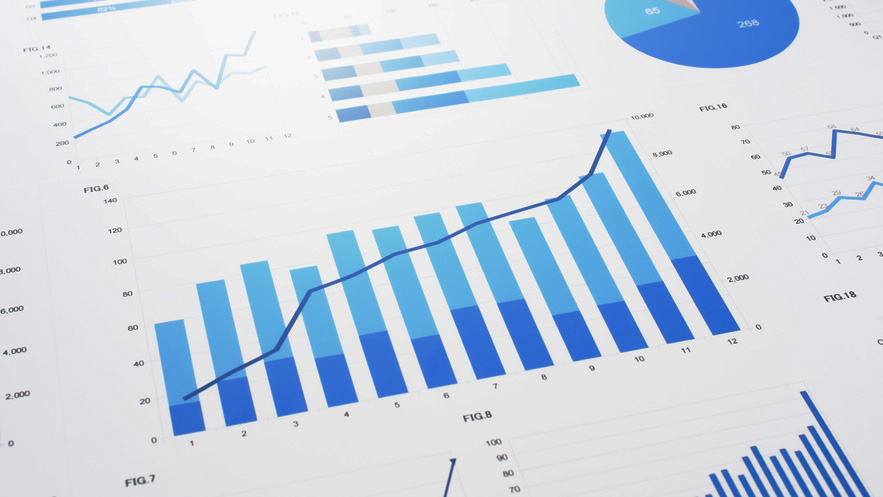S&P Global Ratings sees generally positive ABS performance even as terms lengthen

By subscribing, you agree to receive communications from Auto Remarketing and our partners in accordance with our Privacy Policy. We may share your information with select partners and sponsors who may contact you about their products and services. You may unsubscribe at any time.
NEW YORK –
While keeping a close watch on lengthening contract terms, S&P Global Ratings reported that collateral performance was generally positive for the U.S. auto loan asset-backed securities (ABS) sector in September.
“Losses and 60-plus-day delinquencies decreased month over month as well as year over year in both the prime and subprime segments, although recoveries in both segments declined compared to the prior month,” the S&P Global Ratings analyst team led by Amy Martin said in the report shared with SubPrime Auto Finance News.
“Lower recoveries are typical as we approach year-end and next year’s model vehicles start crowding the showrooms,” analysts added.
S&P Global Ratings determined U.S. prime credit losses improved to 0.53% in September from 0.58% in August and 0.61% in September of last year.
Analysts also found subprime losses decreased 35 basis points to 8.40% in September compared to August and 17 basis points versus September of last year.
S&P Global Ratings reported the prime 60-plus-day delinquency rate decreased slightly to 0.40% in September compared to 0.42% in both August and last September.
Subscribe to Auto Remarketing to stay informed and stay ahead.
By subscribing, you agree to receive communications from Auto Remarketing and our partners in accordance with our Privacy Policy. We may share your information with select partners and sponsors who may contact you about their products and services. You may unsubscribe at any time.
Meanwhile, analysts found the subprime 60-plus-day delinquency rate declined to 5.22% in September from 5.25% in August and 5.36% in September of 2018.
Perhaps most notable, S&P Global Ratings discovered prime recoveries declined considerably, tumbling by 588 basis points to 53.11% in September from 58.99% in August, although they improved from 52.01% in September of last year.
Analysts spotted softening in subprime recoveries, too, noticing a decrease to 40.70% in September from 42.95% in August. But like in prime, subprime recoveries improved year-over-year from 39.42%.
“Recoveries typically decline over the course of the second half of the year, bottoming out around the end of the year or the beginning of the next. September's decline was further magnified by the cool-off in used vehicle prices after an unusually strong summer,” analysts said in the report.
Turning its attention to the contracts making up those securitizations, S&P Global Ratings reported that for the nine months that ended September, average terms increased to 66.13 months compared to 65.73 months for the same period in 2018. Analysts also mentioned the percentage of contracts with an original term greater than 60 months (60.31%) surpassed the level in 2018 (57.78%).
In addition to lengthening terms, S&P Global Ratings pointed out the weighted average annual percentage rate (WAAPR) has increased along with the percentage of used vehicles. Mitigating this, however, are a high weighted average FICO of 755 and lower weighted average loan-to-value. (95.48% compared to 95.94% a year earlier).
“We have started to track the share of loan terms with maturities greater than 72 months, which year to date through September was 7.80% (6.50% in 73-78 months plus 1.26% in 79-84 months),” analysts said in the report.
“While the popularity of larger and more expensive vehicles has endured among consumers as gas prices remain low, the affordability issues thereby created continue to be addressed by lengthening loan terms,” they added.
S&P Global Ratings also emphasized that lengthening terms are happening in subprime, too.
Analysts determined the percentage of subprime contracts with an original term greater than 60 months has fluctuated between approximately 83% and 85% for each one-year period from 2015 through 2018. S&P Global Ratings indicated the percentage for the nine months that ended in September is roughly in the middle of that range at approximately 83.5%, albeit that represents an increase from 81.3% for the same period in 2018 and 83.0% for the full-year 2018.
In addition, analysts said the percentage of contracts with terms greater than 72 months has increased noticeably to 7.38% for the nine months that ended in September from 3.80% for the same period in 2018.
“In recent years, the WAAPR has steadily increased, as has the percentage of used vehicles, which has been somewhat in flux since the Great Recession. The weighted average FICO and LTVs have also experienced fluctuations over the years but have most recently worsened,” S&P Global Ratings said.
S&P Global Ratings went into more details about specific finance companies as well as cumulative net losses in both prime and subprime in its latest report that can be acquired here.


